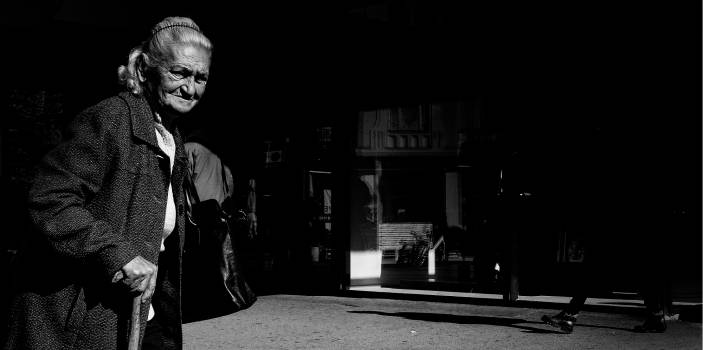
Serbia’s older population is subjected to various forms of abuse, including violence, neglect or psychological harm, yet it is financial exploitation that is most common, the new United Nations Population Fund-supported report Well-kept family secret: elder abuse has found.
Looking at the frequency and different types of abuse, the study revealed that one in five (19.8%) older Serbs reported being exposed to some form of abuse in their later years, and one in ten (11%) had experienced it in the last 12 months.
Furthermore, over half of those who have experienced abuse (11.5% of respondents) have been victim to some kind of financial abuse, with theft the most common form.
The abuse its victims do not perceive
Part of the problem is that as people grow older in Serbia they often relinquish control of their finances.
The survey carried out by the Red Cross of Serbia, in cooperation with the Commissioner for the Protection of Equality of Serbia, found that 13.5% of the 800 telephone survey respondents do not have complete oversight of their accounts.
At the same time, over half (54%) said their finances are used to support other members of the household.
While for many this may be a willing situation in which they have a great deal of agency, there are other victims who do not see the potential for it to be considered abuse. They reason with their self-sacrifice mentality that “I am old now and I don’t really need the money any more, others need it more badly than I do”. This is embedded in the psyche of Serbian identity.
Yet, when those whose money is being siphoned off to other family members cannot afford their own medication or other necessities, it becomes a serious problem.
Nevertheless, those most at risk of financial theft or fraud are the better educated older people who are more likely to have higher pensions and greater reserves of cash.
Silence on sexual abuse
The research was carried out via telephone interviews, which has both advantages and disadvantages. A key benefit is that it encourages people to speak more openly about their experiences, feeling less shame than they might face-to-face.
Yet half of the interviewees declined to answer questions surrounding sexual abuse – only one person felt comfortable enough to reveal they had been targeted sexually. This reluctance to talk could be skewing the prevalence of sexual exploitation of older people in Serbia.
Indeed one of the downsides of telephone interviews is that those who live with their abuser would likely not be able to open up on the phone and risk being overheard. This would silence anyone whose abuser is in close proximity, regardless of whether it is sexual or not. However, with the number of people refusing to answer questions on the issue, there clearly needs to be further research into it and a methodology that overcomes the influence of shame and the taboo nature of sexual abuse in Serbian society.
Violence, neglect and psychological abuse
Violence was the least common form of abuse among the telephone interviewees, with 3.9% revealing they had been exposed to physical abuse.
Meanwhile, psychological, verbal and/or emotional abuse was reported by 7.8% of respondents. All groups of older people are at risk of this kind of ill-treatment, but those not living on their own or with family members are at a somewhat higher risk, similar to financial abuse.
It could be suggested that where households are feeling the impact of Serbia’s growing unemployment on one hand, and pensions account for a higher proportion of household expenditure on the other, it may lead to higher risk of both psychological and financial abuse.
The report reveals that older people with limited functional dependency are more likely to be victims of neglect, and these are exactly the people who need better care and attention. Unlike other forms of abuse, neglect is closely related to social status. It particularly affects those with lower education levels and lower income – an interesting correlation that requires further research to look into the causes.
What can we do?
The revelations and data found in Well-kept family secret: elder abuse oblige us to protect older people through systemic solutions, education and sensitisation of the public.
These recommendations are aimed not only at decision-makers, institutions, professionals, the civil sector and the media – they are meant for individuals too.
Like racism or sexism, ageism and prejudice towards older people is a social disease fed by stereotypes. It is important to change the image of older people as passive receivers of assistance and a burden to the national budget – this image is fundamentally wrong and fuels the fires of ageism.
It will take a great deal lot of work, however, because, as Albert Einstein once said: “It is harder to crack prejudice than an atom”.
Find out more:
- Explore our work in Serbia.
- Read about our report on elder abuse in Moldova (PDF).
